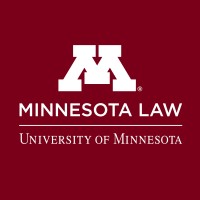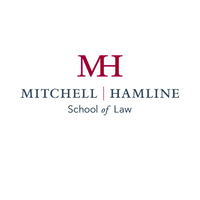Description:
About the Job:Tenured Associate/Full Professor of Media Law and Ethics and Director of the Silha Center for the Study of Media Ethics and the Law Hubbard School of Journalism and Mass Communication
College of Liberal Arts and Law School
University of Minnesota, Twin Cities
Appointment Start Date: August 31, 2026
About the Job:
The Hubbard School of Journalism and Mass Communication in the College of Liberal Arts and the Law School invite applications for a full-time, tenured faculty position to begin fall semester 2026 (08/31/2026) to lead its Silha Center for the Study of Media Ethics and the Law and serve as its academic director.
This joint appointment in the College of Liberal Arts and Law School will be 100% time over the nine-month academic year (late-August to late-May) and will be a tenured associate or full professor, depending on qualifications and experience. The incumbent will be jointly appointed in the Hubbard School of Journalism and Mass Communication (75% effort) and the Law School (25% effort), with a tenure home in the Hubbard School.
We are seeking an outstanding scholar with research and teaching interests that address current issues in media law and ethics. Applications are particularly welcome from scholars with expertise in the First Amendment and press freedom issues. This also includes issues of libel and privacy. Scholars with expertise in social media/polarization/and ownership of content and platforms, regulation of new business models for journalism, and other issues in media law and ethics will also be considered. We seek applications from individuals who bring diverse perspectives on media law, regulation, and technology.
A successful candidate will be expected to teach the required undergraduate course in media law, as well as other courses in their area of specialization in the Law School and Hubbard School.
This faculty hire is expected to lead and establish a multiyear strategic plan for the Silha Center for the Study of Media Ethics and Law that enhances the Silha Center's national reputation for excellence. The Silha Center director serves as a trusted resource within the university to students including strengthening the University of Minnesota as a destination for graduate and undergraduate students to engage with and understand the legal, ethical, and societal implications of digital technologies.
This hire would ideally strengthen the Hubbard School and Law School's ties to other units on campus, including existing collaborations through a practical orientation to media law, ethics and technology issues in society. The Silha director is also an important resource to the professional media community through their public engagement and consultation. The faculty and staff at the Hubbard School of Journalism and Mass Communication and Law School are committed to building a culturally and intellectually inclusive community. We believe it is a vital component of the distinction and excellence of our research and academic programs. We are eager to welcome a colleague who supports and enhances
the unit efforts toward inclusion and the creation of a university where all constituents can thrive.
The Standards for Promotion and Tenure in the Hubbard School of Journalism and Mass Communication are available at: https://faculty.umn.edu/sites/faculty.umn.edu/files/2023-04/HSJMC_7.12_standards_for_promotion_and_tenure_2020.pdf
Benefits of Working at the University
At the University of Minnesota, you'll find a flexible work environment and supportive colleagues who are interested in lifelong learning. We prioritize work-life balance, allowing you to invest in the future of your career and in your life outside of work. The University also offers a comprehensive benefits package that includes:
- Competitive wages, paid holidays, and generous time off
- Continuous learning opportunities through professional training and degree-seeking programs supported by the Regents Tuition Benefit Program
- Low-cost medical, dental, and pharmacy plans
- Healthcare and dependent care flexible spending accounts
- University HSA contributions
- Disability and employer-paid life insurance
- Employee wellbeing program
- Excellent retirement plans with employer contribution
- Public Service Loan Forgiveness (PSLF) opportunity
- Financial counseling services
- Employee Assistance Program with eight sessions of counseling at no cost
- Employee Transit Pass with free or reduced rates in the Twin Cities metro area
Please visit the Office of Human Resources website for more information regarding benefits.
Qualifications:
Required: J.D. with expertise in media ethics and law and contemporary legal issues related to First Amendment freedoms of expression and freedom of the press. Demonstrated ability to teach undergraduate courses in the areas of media law and ethics.
Preferred: In addition to an earned J.D., it is preferred that the candidate hold a Ph.D. or MA in journalism and mass communication or related field with an emphasis on topics related to First Amendment freedoms of speech and freedom of the press. Scholars with expertise in social media/polarization/and ownership of content and platforms, regulation of new business models for journalism, and other issues in media law and ethics will also be considered. Relevant professional legal experience and the capacity to contribute to the ongoing development and delivery of a rapidly evolving emerging-media focused professional journalism and law curriculum, including use of technology and its challenges for media companies and professions, are also preferred qualifications.
Candidates will be evaluated according to a) required and preferred education qualifications, b) overall quality of their legal and scholarly work, c) relevance of their scholarly research and legal experience to the school's academic priorities and fields of inquiry, d) evidence of commitment to teaching and/or training journalism and law students, and e) service leadership experience relevant to managing an academic engagement center.
About the Department
About the Hubbard School of Journalism and Mass Communication
The Hubbard School of Journalism and Mass Communication at the University of Minnesota is part of the College of Liberal Arts and is accredited by the Accrediting Council for Journalism and Mass Communication. The Hubbard School offers three undergraduate majors in Strategic Communication - Advertising and Public Relations, Professional Journalism, and Media and Information; and minors in Media and Information and Digital Media Studies. The Hubbard School offers an academic M.A. and Ph.D. in Mass Communication and a Professional M.A. in Strategic Communication.
Housed in Murphy Hall, a state-of-the-art facility for teaching and research of journalism, strategic communication, and emerging media studies, the Hubbard School is home to the Silha Center for the Study of Media Ethics and Law, the Minnesota Journalism Center, the Strategic Communication Hub, Health Communication Research Institute, Hubbard Digital Hub Studios, and the Digital Information Research Center/Sevareid Library. Hubbard facilities also include the Murphy Hall conference center, multimedia classrooms, and psychophysiological communication research labs, and a focus group room, which is used to support graduate-level experimental research. A 2025 Murphy Hall renovation enhances
the dedicated office, meeting, interview, and event spaces available for the Silha Center. For further information, please visit the Hubbard School of Journalism and Mass communication's website, at: https://hsjmc.umn.edu/
About the College of Liberal Arts
Established in 1868, the College of Liberal Arts supports the University of Minnesota's land-grant mission as home to disciplines in the arts, humanities, and social sciences.
The College of Liberal Arts is committed to intellectual freedom, the pursuit of new knowledge, and the belief that the liberal arts are the foundation of academic learning. CLA prepares students to be independent and original thinkers, innovators in their chosen fields; to create meaning in their lives and in their life's work; and to become productive citizens and leaders in their communities and the world.
The College of Liberal Arts values diverse cultures, experiences, and perspectives as key to innovation and excellent education: www.cla.umn.edu.
Founded in 1851, the University of Minnesota, with its five campuses and more than 65,000 students, is one of the largest, most comprehensive universities in the United States, and ranks among the most prestigious research universities in the world. It is both a major research institution, with scholars of national and international reputation, and a state land-grant university, with a strong tradition of education and public engagement.
About the Law School
Recognized as one of the country's preeminent public law schools, the University of Minnesota Law School is a leader in preparing students to solve our time's complex social, economic, and business issues. Our exceptional faculty, innovative curriculum, and unmatched clinical and experiential learning opportunities equip students for the demands of the 21st century. We are distinguished by a ra
The Hubbard School of Journalism and Mass Communication at the University of Minnesota is part of the College of Liberal Arts and is accredited by the Accrediting Council for Journalism and Mass Communication. The Hubbard School offers three undergraduate majors in Strategic Communication - Advertising and Public Relations, Professional Journalism, and Media and Information; and minors in Media and Information and Digital Media Studies. The Hubbard School offers an academic M.A. and Ph.D. in Mass Communication and a Professional M.A. in Strategic Communication.
Housed in Murphy Hall, a state-of-the-art facility for teaching and research of journalism, strategic communication, and emerging media studies, the Hubbard School is home to the Silha Center for the Study of Media Ethics and Law, the Minnesota Journalism Center, the Strategic Communication Hub, Health Communication Research Institute, Hubbard Digital Hub Studios, and the Digital Information Research Center/Sevareid Library. Hubbard facilities also include the Murphy Hall conference center, multimedia classrooms, and psychophysiological communication research labs, and a focus group room, which is used to support graduate-level experimental research. A 2025 Murphy Hall renovation enhances
the dedicated office, meeting, interview, and event spaces available for the Silha Center. For further information, please visit the Hubbard School of Journalism and Mass communication's website, at: https://hsjmc.umn.edu/
About the College of Liberal Arts
Established in 1868, the College of Liberal Arts supports the University of Minnesota's land-grant mission as home to disciplines in the arts, humanities, and social sciences.
The College of Liberal Arts is committed to intellectual freedom, the pursuit of new knowledge, and the belief that the liberal arts are the foundation of academic learning. CLA prepares students to be independent and original thinkers, innovators in their chosen fields; to create meaning in their lives and in their life's work; and to become productive citizens and leaders in their communities and the world.
The College of Liberal Arts values diverse cultures, experiences, and perspectives as key to innovation and excellent education: www.cla.umn.edu.
Founded in 1851, the University of Minnesota, with its five campuses and more than 65,000 students, is one of the largest, most comprehensive universities in the United States, and ranks among the most prestigious research universities in the world. It is both a major research institution, with scholars of national and international reputation, and a state land-grant university, with a strong tradition of education and public engagement.
About the Law School
Recognized as one of the country's preeminent public law schools, the University of Minnesota Law School is a leader in preparing students to solve our time's complex social, economic, and business issues. Our exceptional faculty, innovative curriculum, and unmatched clinical and experiential learning opportunities equip students for the demands of the 21st century. We are distinguished by a ra



